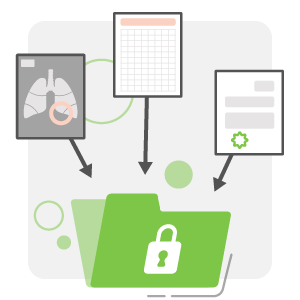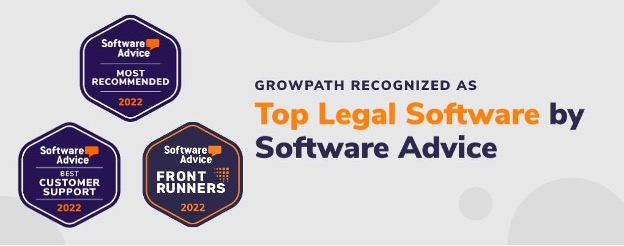Law Firms and the Legal On-Demand Economy
The on-demand economy or “gig” or “sharing” economy is a growing trend in which businesses provide products and services to clients when and where they need them via internet cloud technology, apps, websites, and social media. Familiar on-demand companies may include AirBnB, Uber, and DoorDash food delivery as well as sites for service providers such as Fiverr, TaskRabbit, and Freelancer.
As the on-demand economy’s growth continues, lawyers and law firms have begun using it to develop on-demand legal services to suit clients’ evolving consumer behavior.
For example, there are now online technology companies that connect clients with lawyers when a client has a car accident or gets injured at work. There are also companies called Alternative Legal Service Providers that provide alternatives to traditional legal services.
According to the American Bar Association, more than 20% of the U.S. adult population has used or participated in an on-demand business, and the number is growing. The revenue of U.S. legal services is projected to reach $348.5 billion by 2024 according to Statista, with a significant portion of market share devoted to personal injury and workers’ compensation. Clearly, there are opportunities for law firms that engage in the on-demand economy, and competitive risks for those that don’t.
In this article, we’ll discuss the on-demand economy for lawyers and how law firms can benefit from it. We’ll also talk about some of the pitfalls on-demand firms need to be aware of, as well as some best practices for developing on-demand platforms for legal services.
Benefits of the Legal On-Demand Economy for Plaintiff Firms and Lawyers
By utilizing on-demand economy technology to provide legal services, law firms can enjoy the following benefits:
Fulfill consumer demand anywhere, anytime
By providing online services in a virtual law firm environment, lawyers can serve clients anywhere, anytime they need them. This allows you to gain market share and reach new niche markets you couldn’t otherwise.
Automate, streamline, and analyze key firm marketing activities
Lawyers can create automated strategies to reach their target audiences and convert ideal clients through intake, while analyzing results and adjusting tactics in real time. The result is a marketing strategy that increases revenue while saving you time and money.
Artificial Intelligence (AI) resource integration and support to drive enhanced service
AI tools support on-demand legal services with simple task management applications such as basic legal research, document outlining and drafting, and intake automation. This supports and enhances client service through the on-demand business model.
Differentiate from competitors with a unique approach to target your ideal clients
Legal on-demand platforms create opportunities for lawyers and law firms to differentiate by reaching clients in multiple ways, and by being available at the time and place their ideal client needs them.

What Risks Do Lawyers Need to Be Aware Of in the Legal On-Demand Economy?
If you’re considering implementing on-demand services for your firm or practice, there are a few things you need to keep in mind to avoid falling into any pitfalls. These include:
Professional Responsibility
On-demand economy technology can present special challenges to law firms in terms of their professional responsibilities to clients, such as conflicts of interest, client confidentiality, and attorney-client privilege. Some of the ways for firms to avoid the potential problems of providing on-demand services include:
- Including clearly defined terms of service and transparent fee structures for clients to accept before engaging with your practice.
- Ensuring all on-demand services are covered by your professional liability insurance.
- Complying with applicable laws and rules of professional conduct.
- Implementing effective data privacy and security tools, processes, and protocols to protect client data.
Online reputation and reviews
Given that on-demand services largely revolve around online marketplaces, websites, apps, and social media, your firm’s online reputation will be a crucial factor in how your clients decide whether to use your services. This makes it especially important to provide excellent service throughout each client engagement, every single time.
Personal connectedness
The traditional business model for most law firms revolves around building relationships with clients through direct contact. While on-demand legal services may seem to limit direct connectivity, they can actually facilitate engagement between clients and attorneys by providing additional means and opportunities to communicate. Your on-demand strategy should focus on fomenting connections between clients and your firm’s lawyers.
How Case Management Software Helps Plaintiff’s Firms Thrive in the Legal On-Demand Economy
Legal case management software enables firms to engage in the on-demand economy by providing enhanced efficiencies, streamlined workflows, and optimized client service for anyone, anywhere. Some of the on-demand features of case management software and the corresponding benefits they provide include:
Marketing and intake
- Lead scoring to focus your advertising on the leads that are the best fit with analytics to guide your marketing strategy.
- Smart questionnaires to uncover additional case opportunities during intake.
- Click-to-convert functionality so you can sign your ideal clients before the competition.
Case organization 
- Matter trackers with real-time alerts so you’re always aware of developments in your cases.
- AI-driven legal research to help you find relevant case law and other information.
- Automated communications to keep clients in the loop with case updates.
Firm productivity
- Gravity reports that show your firm’s productivity in terms of case progress, resource allocation, and employee workload.

- Automatically assign tasks and monitor employee productivity in real-time so you can clearly discern top performers from those who are available for more work, training, or coaching.
- Enjoy time and money savings with enhanced efficiencies by optimizing firm productivity.
Cutting-edge data security
- Protect client data as you collect and store it online with patented, military-grade data security tools.

- Ensure that hackers and other bad actors never have an opportunity to steal sensitive client information.
- Access and transmit secure data through your mobile devices so you’re confident it’s secure no matter where you are.
Centralized document management
- Collect and organize client data and documentation for easy access and reference no matter where they are or what type of case they have.
- Store important information in easily searchable databases.

- Make better decisions faster and more efficiently with all the crucial details of a case at your fingertips.
Find Out How GrowPath Case Management Software Can Empower Your Firm in the Legal On-Demand Economy
GrowPath was recognized as a “Frontrunner” by Software Advice as one of its most recommended legal software programs for 2022, and for our stellar customer support.

Interested in discovering how GrowPath case management can help your firm in the legal on-demand economy? Click here to schedule a demo today!
FAQs:
What is the on-demand economy?
The on-demand economy, also known as the “gig economy” or “sharing economy,” refers to an on-demand business model that provides products and services at the time and place clients require them, either in physical or virtual space.
What is an example of an on-demand economy?
Online services that connect consumers with providers of products and services in real time are examples of on-demand economies. A legal on-demand economy might consist of a service that connects personal injury attorneys with clients who’ve just been in a car accident and need legal guidance immediately.
What are the benefits of an on-demand economy?
On-demand economy technology can provide increased convenience, flexibility, and transparency to both the providers and consumers of products and services.
For example, a plaintiff’s lawyer could benefit by streamlining processes such as marketing, intake, and case management with on-demand economy technology to save time and money.
What is an ALSP in law?
An Alternative Legal Service Provider (ALSP) provides on-demand legal support services by leveraging technology, process optimization, and non-traditional staffing models to deliver cost-effective and efficient legal solutions.
What are the examples of ALSP?
Examples of ALSPs include services that provide legal support services such as document review, contract management, and legal research.
How big is the ALSP legal market?
A leading business research organization reported that the worldwide legal process outsourcing (LPO) market, including ALSPs, was valued at $5.23 billion in 2020, with an expected compound annual growth rate (CAGR) of 25.8% from 2021 to 2028.

